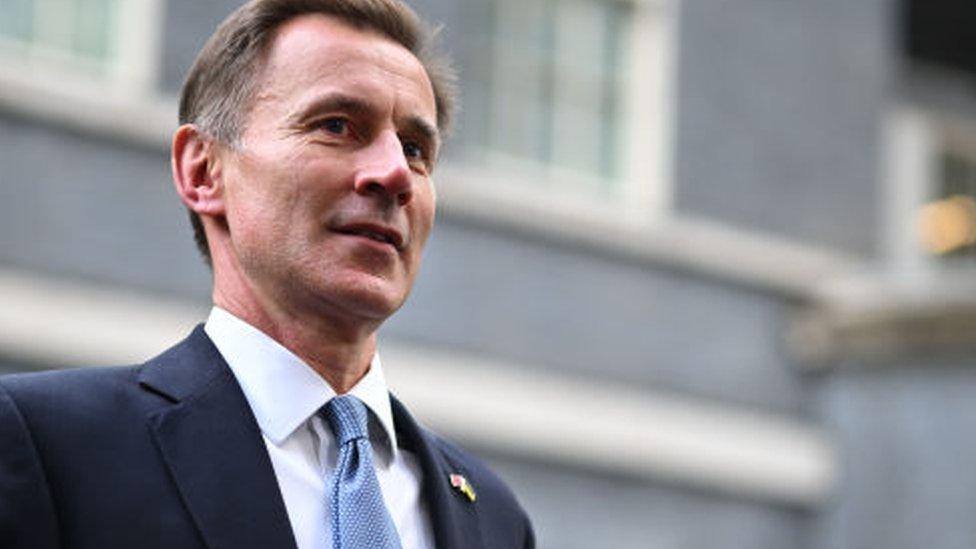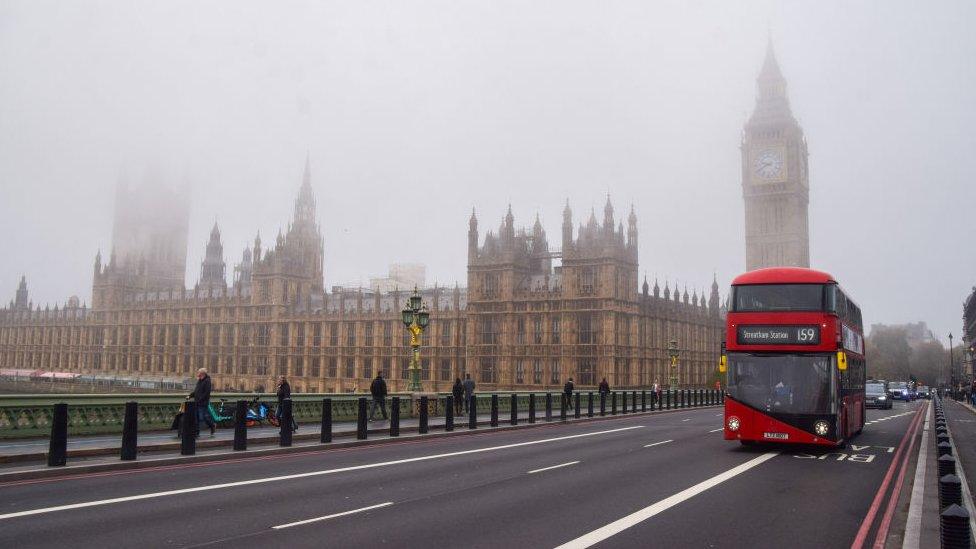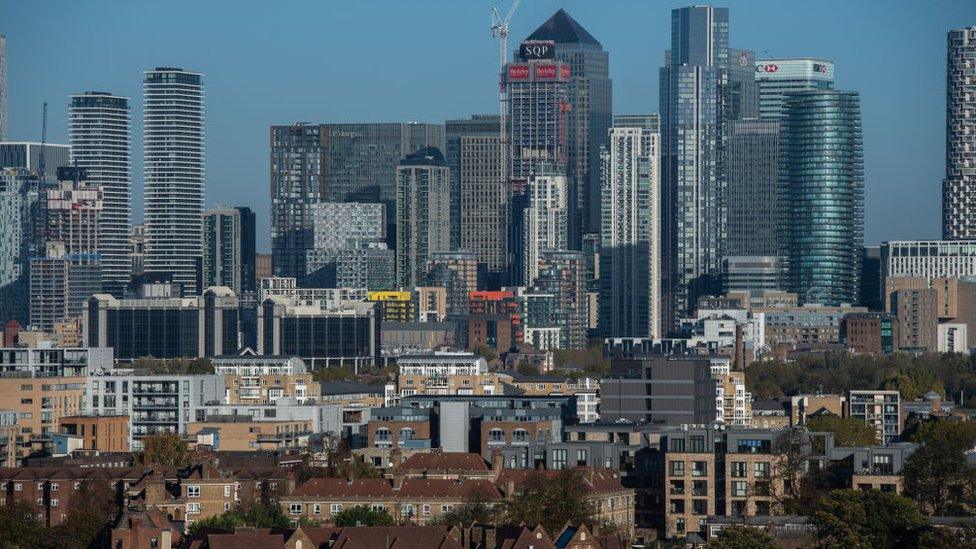London councils wait in trepidation for Autumn Statement
- Published

Chancellor Jeremy Hunt will make his Autumn Statement on Thursday
The chancellor's statement is being awaited with some dread at councils across London. There is no scope for further cuts. Quite the opposite. Boroughs are already facing the need to find savings of £700m next year - and that's before Mr Hunt even gets to his feet in the House of Commons.
This is a situation brought about by the combination of rising energy costs, inflation and the increase in demand from an expanding and ageing population.
Sums are now being done and decisions being made, which town hall financial chiefs say are effectively harder than the austerity cuts of the Cameron-Osborne led coalition government, because this is now down to the bone and there is so little left to trim.
In the past decade London's councils have had their spending power eroded by a 20% in real terms. A third of staff - about 80,000 jobs - have been shed.
Officials at London Councils - which represents the 32 boroughs and the Corporation of London - say this is now about confronting the possibility of paring back all basic services which make local communities and environments more pleasant - leaving them to focus on statutory services like care for vulnerable children and adults.
Trailed ahead of the statement is the possibility of allowing local authorities to raise council tax. Officials say this would effectively pass the buck to councils, leaving them open to the anxiety and anger of local voters suffering economic hardship.
Besides, to fill next year's £700m black hole would require council tax to go up by about 18% - unthinkable.

Teachers are already warning cuts will have to be made to extracurricular activities
Education
The mood music has been bleak for schools - with a group of Tory MPs (led by recently-departed education secretary Kit Malthouse) writing a letter pleading for funding to be protected.
Parents and carers are quite used nowadays to getting missives of their own from head teachers pleading for cash contributions to keep things ticking over in the classroom and in the playground.
Teaching organisations say it's not just the core teaching and care at risk of erosion, but the pastoral and cultural columns that help to support a rich learning environment.
It's things ranging across equipment, school trips, mentoring and mental health support which are forced into the firing line. Of 1,800 respondents to a recent survey of London schools by the National Association of Head Teachers, nearly two-thirds said they were heading for a deficit by the end of the financial year.
A similar percentage predicted cuts to learning support staff and teaching assistants. Half are looking at shedding teachers and cutting teaching hours.

Will promises made by Boris Johnson about new or improved health facilities fall by the wayside?
Health
The wide assumption is that health spending will be protected in cash terms. But the planned strikes by nursing staff show the level of anger, and of expectation that it should be those working on the front line too who are protected from the rising cost of living.
There are also question marks about whether cuts to capital spending will jeopardise the promises of new or revamped healthcare facilities, made by Boris Johnson.
London is - or was - set to get improvements to 20-plus hospitals, including two new ones, two rebuilt and others extensively refurbished or supplied with new equipment. Across the capital, communities will be looking closely to see whether the substance - or just the pace - of these plans is reduced.

Transport and infrastructure is essential to a growing London population
Transport
With the opening of the Elizabeth line - Crossrail - some may feel that the capital has had its due in terms of serious transport investment for now and shouldn't expect too much more for the time being.
But the capital can't and doesn't stand still. Its population is growing steadily and fewer people are using their own transport as we confront challenges of air quality and energy use.
The housing situation means people have to live even further from their place of work. So there'll be a close look tomorrow at infrastructure spending and whether it can be perceived as having the kind of anti-London bent seen under Mr Johnson's levelling-up agenda.
You will know things are not looking good if Transport for London reacts to the statement, expressing doubts about extending the Bakerloo line to Lewisham and upgrading the signalling on the Piccadilly line.
Disappointment about the progress of Crossrail 2 - a new north-south line cutting through central London - is now perennial.

The cost of living will be on many people's minds across the capital

Follow BBC London on Facebook, external, Twitter , externaland Instagram, external. Send your story ideas to hellobbclondon@bbc.co.uk, external
Related topics
- Published17 November 2022

- Published17 November 2022

- Published18 November 2022
